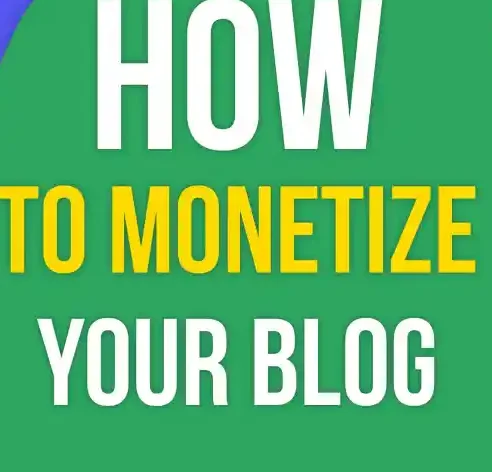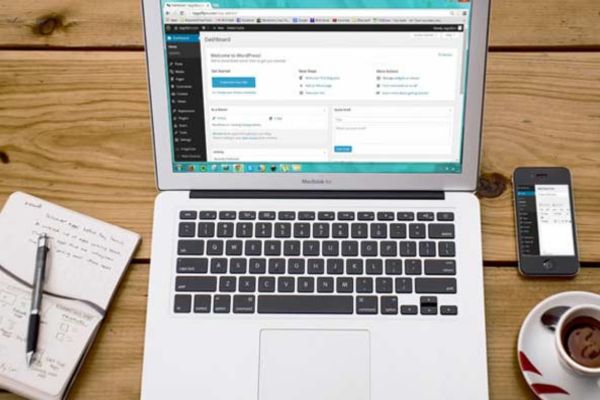How start a Profitable Blogging Business For Beginners

Earning a living through blogging may seem like a fantasy. Not only do you have the freedom to work independently and avoid the typical 9-to-5 grind, but you can also share your thoughts from anywhere in the world on topics that interest you. While it requires dedication, even newcomers can succeed with the right approach.
How start a Profitable Blogging Business For Beginners
Naturally, the first step is to create a blog and join the blogging community. After that, it’s essential to build a following. Whether you’re looking for a side gig or a full-fledged career, this in-depth guide will take you through practical steps on how to launch a blog, attract readers, and expand your online presence. Additionally, you’ll discover powerful tools to help you understand how to monetize your blog, converting your website traffic into income and potentially launching an online business.
The first steps in making money blogging are selecting a strategic blogging niche and promoting your site. Here’s how to do it:
01. Choose a profitable niche
If you’re new to blogging, you may be wondering—What should I write about?
Before you start writing, it’s important to choose a specific topic. Selecting a niche will help attract a focused audience to your blog.
Begin by considering your interests when choosing your niche—since you’ll be investing a lot of time and effort into this topic. However, if you’re aiming to earn money through blogging, it’s also crucial to consider the subjects that people are interested in reading about and whether they are financially viable.
Take Cup of Jo as an example, a popular women’s lifestyle blog that covers various topics such as food, culture, style, travel, relationships, and parenting. Established in 2007, the blog attracts “over 4 million monthly page views and almost 1 million monthly unique visitors,” according to the site. By focusing on a specific niche and delivering relevant content to the right audience, founder Joanna Goddard has built a strong community and engaged readership.
02. Scale your blog content
It’s time to get writing for your blog now that you’ve decided on a niche. As you get started, remember that the planning and research that goes into your posts can have an equal impact on your blog’s financial performance as the actual writing.
Additionally, you should constantly and regularly publish new material without sacrificing its quality. When you begin producing and growing your content, keep the following in mind:
Selecting the right blog topics is crucial after choosing a strategic blog niche.
- It is important to choose topics that serve the needs of your target audience and provide them with practical solutions. Additionally, it is essential to target keywords with high search volumes, indicating the level of interest in a particular word or topic over a specific period.
- By addressing popular search queries with comprehensive answers, your articles are more likely to rank organically on search engines and attract more visitors to your site.
Post blog content consistently
You must regularly publish new material if you want your website to receive more visitors. The frequency of posts on your blog will depend on its size and requirements. HubSpot suggests one to four posts a week, but larger businesses might publish an article every day, or even more than once.
Additionally, you should maintain a regular posting schedule. Avoid publishing an enormous number of articles one week and nothing the next. Instead, arrange a regular publishing schedule in advance and make an editorial calendar.
Distribute the workload
Remember that you are honing your entrepreneurial abilities in addition to expanding your online presence as you think about ways to monetize your blog. Soon, you’ll find it challenging to run your business and produce up to three postings a week. Don’t let that stop you, though. To scale your material faster after your blog debut, think about hiring more help. To accomplish this, you can:
- Utilizing freelancers to handle some content
- Allowing other bloggers to post content on your website (a fantastic free alternative that also promotes the guest writer).
Regardless of the choice you select, arrange your responsibilities such that writing and business strategy take centre stage.
03. Build a reputation
After creating a substantial amount of strategic content, the next step towards monetizing your blog is to establish yourself as an authority in your field.
Here are some tips to help you achieve that:
Consider guest blogging as a way to expand your online presence, especially within the blogosphere. Reach out to online publications in your niche and propose ideas for guest posts. Make sure to include a link to your blog when pitching to showcase your expertise in the field.
To find opportunities for guest blogging, explore your preferred publications to see if they feature content from external contributors. You can also refer to a list of 101 guest-posting publications and sites that may be worth contacting.
- Work together with professionals
To get awareness, cultivate an audience, and establish credibility, you can also collaborate closely with other authorities in your industry.
Speak with experts in your blogging field, such as the editor of your preferred magazine or a guest writer you admire for success. Request permission to interview them for a guest post or to be published on your own site. Although this could seem like a daring request, individuals in this role frequently agree to participate in interviews because it broadens their exposure.
You can also cross-promote other bloggers in your field. Mention their articles in your blog posts and social media updates, and converse with them on Twitter. They’ll probably start reading your stuff in return.
4. Promote and grow
You may make money from your blog more readily the more people that read it. Increasing website traffic is therefore a crucial first step towards monetizing your blog.
Before learning how to market your blog, remember that you need to be promoting your work all the time. Start promoting your website as soon as you launch your blog, in addition to taking all other necessary actions. Marketing your site will become as important to its success as blogging itself, even as your viewership grows.
- Optimize for SEO
Search engine optimization (SEO) is extremely important for ensuring that your website is easily found on search engines like Google. To increase the visibility of your blog, focus on creating content that appears on the first page of organic search results for relevant queries. For instance, if you have a baking blog, aim to be among the top results for searches such as “birthday cake recipes” and “carrot cake recipes.”
To achieve this, it’s essential to not only produce highly informative blog posts but also to optimize them using specific long-tail keywords that target your exact audience.
Although this may seem daunting, new bloggers can easily learn how to identify these keywords, especially with the assistance of various keyword research tools. These blogging tools, including Google Keyword Planner, SEMrush, Ahrefs, and others, guide you to the terms you should incorporate.
If you are unfamiliar with SEO and keyword research, it’s beneficial to invest some time in completing a brief online SEO course, many of which are available for free. Wix’s SEO Learning Hub is a great starting point.
Additionally, you can refer to a blog post checklist to ensure that you have addressed all the essential SEO elements, from keyword research to image optimization.
5. Advertise within your blog
Adding Google AdSense advertisements to your blog entries is one approach to monetize your writing and earn money from it.
What is Google AdSense exactly? With the application, you can add ad slots to your website. Google then displays pertinent adverts for readers of your blog and website in those gaps. When consumers watch or click those adverts, they get paid.
Wordstream claims that the average cost per click (CPC) for all US keywords and business categories is between $1 and $2. This is the total average CPC for Google Ads.
Bloggers can convert their website traffic into income through this well-liked and profitable advertising program. With the advertising network, you can select the ad sizes, shapes, and placement that work best for you, enabling you to maximize clicks while still providing a user-friendly browsing experience for your visitors.
6. Offer paid subscriptions
You have the option to earn money by blogging by creating and selling online subscriptions, allowing loyal readers to purchase access to special content.
Naturally, some of your content should remain free so that readers can explore your blog before making a decision to purchase. However, you can enhance the free content with detailed posts that provide exclusive insights that subscribers would be willing to pay for. To capture your readers’ interest, offer them a sneak peek of each exclusive post and then encourage them to subscribe to read the full content.
Another approach, albeit slightly different, is to offer paid memberships to your website. You can entice members with various benefits, such as access to webinars, downloadable resources, and complimentary blog content.
7. Market goods, e-books, and other items
One more way to generate income is by selling goods straight from your blog. You can accomplish this by starting an online store and selling goods associated with your personal brand or blog niche.
Remember that you are not limited to selling tangible goods. A lot of bloggers also choose to offer digital products.
To help you come up with ideas for the kinds of products you can sell, consider the following:
- E-books
- Online courses/Vlog
- Webinars and virtual events or meet-ups
- T-shirts, stickers and merchandise with your blog logo
- Handmade crafts and other goods
- Printables
- Workshops
For instance, if you launched a fitness blog, you might end up selling branded athletic gear. On the other side, if you’ve launched a travel blog, you might try charging for downloadable digital travel guides.
8. Become an affiliate
Do you remember when we examined the actual earnings of bloggers? Their financial records reveal that almost all top bloggers utilize affiliate marketing as a key part of their money-making strategy. And it’s no surprise – affiliate marketing offers a relatively simple way to generate passive income.
In essence, affiliate marketing involves earning money through blogging by promoting products created by others. This includes inserting affiliate links to various products or services in your posts, throughout your website, or on your social media platforms. When visitors to your site click on these links and make a purchase, you’ll receive a commission from the sale.
Conclusion
Monetizing a blog as a beginner can be a rewarding and fulfilling experience, allowing you to turn your passion into a profitable endeavour. By leveraging the strategies and techniques discussed in this article, you can start generating income from your blog and build a sustainable business around your content. Remember, successful blog monetization requires a strategic approach, consistent effort, and a deep understanding of your audience’s needs and preferences.
Continuously experiment with different monetization methods, analyze your performance, and adapt your strategies to find the right mix that works best for your blog and your unique circumstances. With dedication, creativity, and a willingness to learn, you can successfully monetize your blog and achieve your financial goals as a beginner blogger. Embrace the power of blog monetization and unlock the full potential of your online presence.



